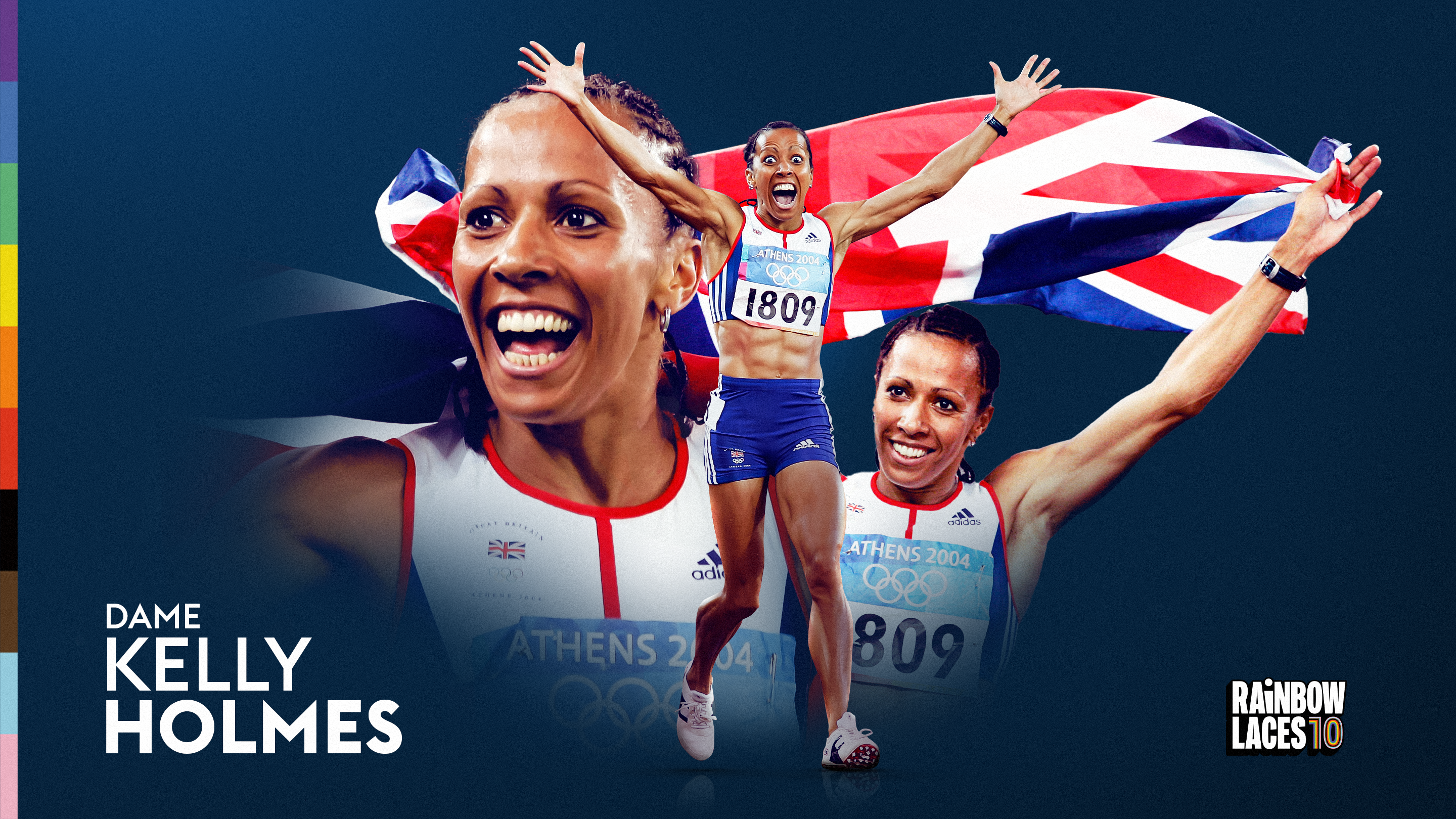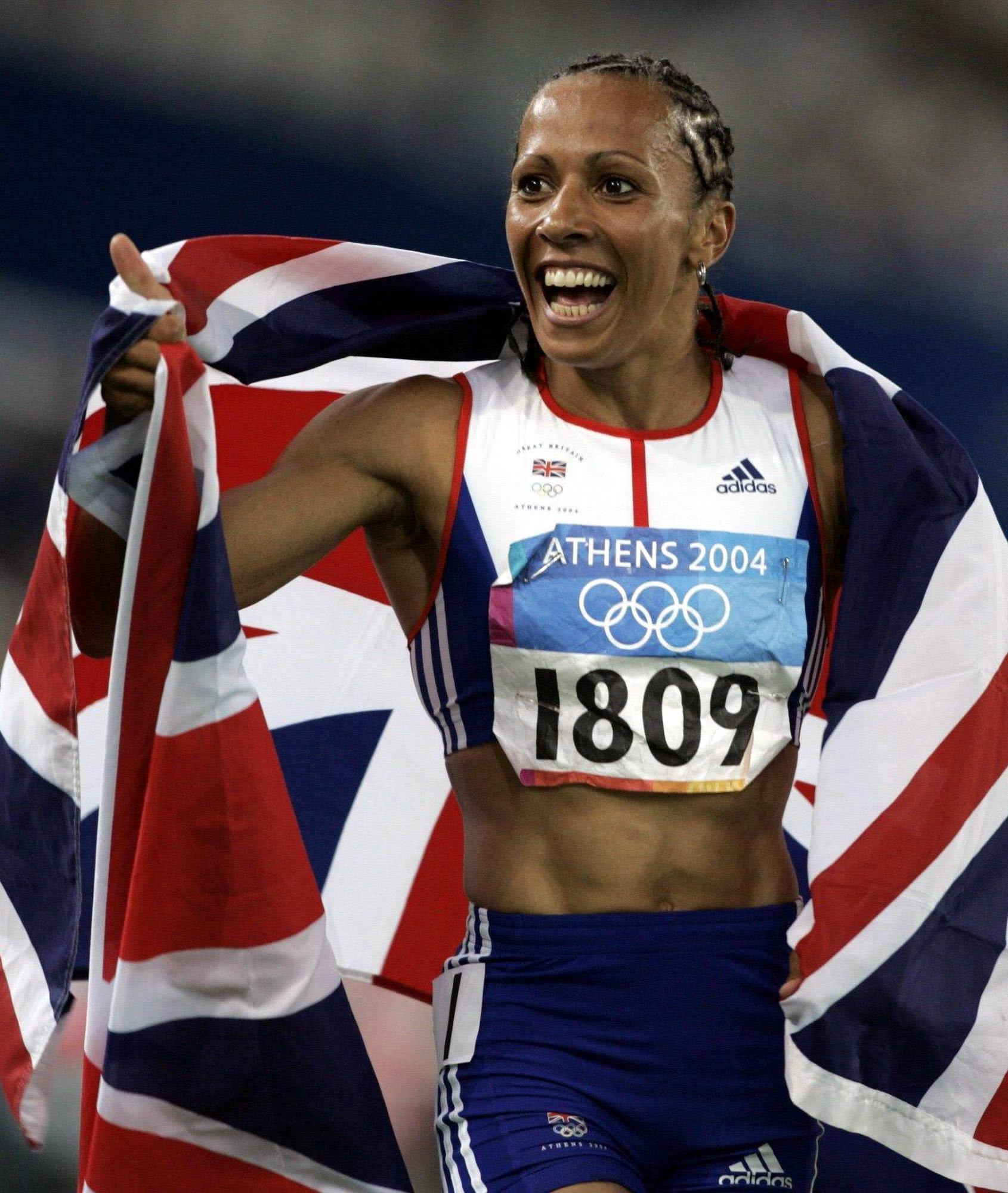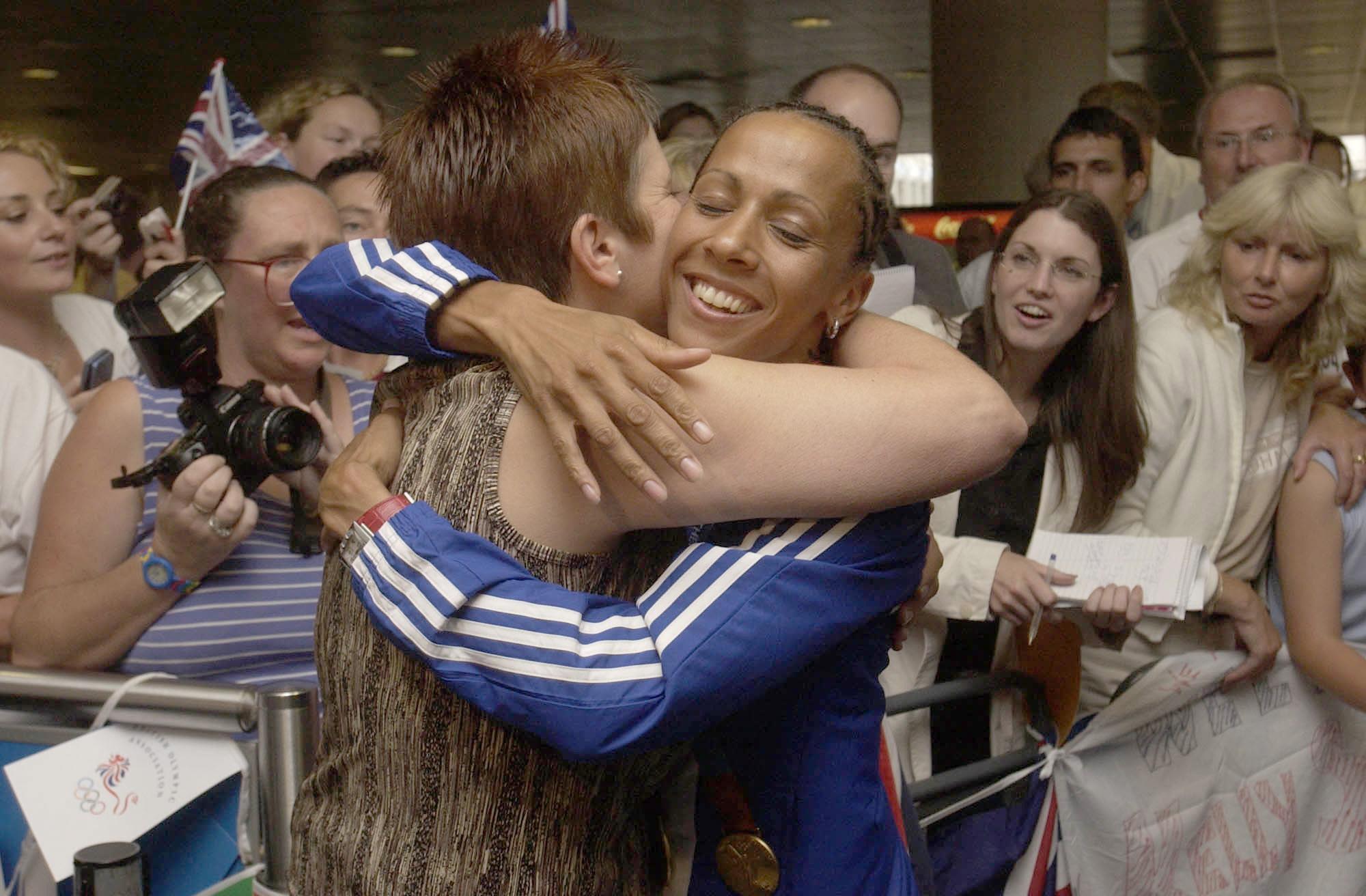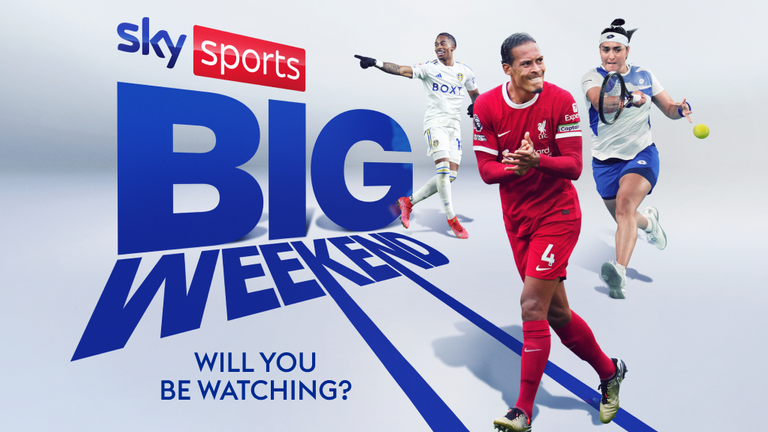
Dame Kelly Holmes: 'I'm happy for the first time ever'
She's one of Britain's greatest Olympians but there was a fear factor that haunted Kelly Holmes long after her achievements in Athens. As Rainbow Laces returns, she talks to Sky Sports News about putting distance between today and the struggles of her past
By Miriam Walker-Khan and Maryam Chaudhary
Dame Kelly Holmes' double Olympic middle distance wins in the 800m and 1500m at the 2004 Athens Olympics were iconic moments that went down in British sporting history. She became the first Briton in 80 years to do the distance double.
An Olympic gold medal was a childhood dream for Holmes. But nothing felt more liberating for the 53-year-old than coming out as gay and allowing herself to become her true, authentic self - something that would happen almost two decades later.
Sky Sports' Diversity and Inclusion reporter Miriam Walker-Khan reminisced with Holmes on that memorable 2004 Olympic Games, her next steps after retirement, life in the Army, and her decision to come out...
Sky Sports is a member of TeamPride which supports Stonewall's Rainbow Laces campaign, currently receiving its annual activation from November 25 to December 10.
From a young age, Holmes dreamt of winning an Olympic gold medal. But to do the 800m and 1500m double was something even she had not let herself imagine before the 2004 Athens Olympics.
"I can look back 19 years later and think, 'how did I do it?' But I think what was critical was that I had always had a talent, clearly, and I knew my trade."
Holmes had won a bronze medal in the 800m at the 2000 Games in Sydney and a silver in the same event at the 2003 World Championships.
But winning medals in both the 800m and 1500m was something she had never managed on the world stage, at the same event. So how did it all come together on the biggest stage of them all?
"I knew how to race. I knew my opposition. I had trained with the best, I had raced with the best and I knew my downfalls," she told Sky Sports.
"It was really important to know my weaknesses, which were injuries, and then my mindset, because every time I got injured, it just brought me down. I wanted to be at the top.
"I just didn't give up on it. The moment you give up, you don't get anywhere. If I came away with a bronze, it's better than not getting a medal. If I'd given up, I don't get [a medal] so that was my attitude," she said.



"I had a talent, I didn’t give up on it. I went through the rollercoaster ride of getting there but I finally did it."
That rollercoaster ride of winning Olympic gold medals with numerous injury struggles was one thing, but by 2004, Holmes had already lived an entire life in which she had to become resilient from a young age.
Until the year 2000, it was illegal to be gay if you served in the Armed Forces. Holmes first realised she was gay in 1988 when she was 18, but had dreamt of joining the Army since being a child.
She also grew up during the global AIDS/HIV epidemic when homosexuality was stigmatised. She therefore never felt comfortable coming out as gay due to fear of being arrested, court-martialled or thrown out of the Army. She said her life was "consumed with fear" due to the law.
When she was 22 years old, Holmes was raided by Royal Military police - an experience she says was extremely frightening and intimidating. Holmes believes the purpose of the raid was to find out if she was gay.
"It's police coming into your place of living and completely ransacking it. The only way I can describe is if you went home tonight and the perpetrators are in your house and they are vilifying you, they're spitting in your face, they're getting all your belongings, they're stamping all over them."
"The complexities of that and then knowing what other people went through just because of who they loved or who they were... That just instilled a fear in me," she said.
The Armed Forces ban was lifted only four years before the Athens Olympics, when Holmes was still "petrified" of being outed, especially after her wins when she was thrust into the public spotlight.
Just a year before Sydney, in a holding camp before the 2003 Paris World Championships, Holmes was struggling with her mental health and had self-harmed. She also did not know any other gay athletes in athletics, which she says was another reason she did not come out.
"I think because of then being an elite athlete when no one spoke about it, it was almost like, 'I've got to shut up, I can't say anything because what will the response be? How are people going to judge me? What are people going to think?'

"And so I kind of just thought that I had to keep it in. But there comes a point in life where we have to remember we live our own life. We don’t live it for somebody else."
In June 2022, when Holmes was 52 years old, she decided to come out publicly. It was a moment that gay rights campaigner Peter Tatchell at the time called "the tip of the iceberg", adding that "several other huge British sports stars [hadn't] been able to come out."
"They grew up in an era of often toxic homophobia and even though Britain is more liberal today, they have been scarred by that experience for life," he said.
In 2017, Holmes' mum had died, which changed things for her.
"It took me until my mum passing to realise that she wanted me to be happy and live my life. She doesn't have a life to live. I do.
"And to free myself almost, because there's nothing more debilitating for anybody than living in fear and not having the freedom to be themselves.


"There's nothing more liberating than just feeling like you're you. And I needed to be me."
Holmes said she never spoke to any fellow athletes or teammates about her sexuality. "I wasn’t normal with people, I didn't go out for coffees, I didn’t socialise with people because of fear," she said.
"Now I'm friends with people like Sally Gunnell, Denise Lewis, and they accept me for who I am. They’re just so proud of me and happy for me and it's just an overwhelming response.
"I'm happy for the first time ever."


"I’m not afraid to talk about it for the first time ever. If you cheered me on winning my two gold medals with the national anthem playing, and you were proud, you should still be proud of me for this."
"Hard work, determination, never giving up and having that 'I'm going to do it' attitude made me a double Olympic champion and that's what I want people to realise.
"We're human. What I love now, is that I have that voice and platform, I'm not afraid to say who I am. We deserve to live our life and that's what I’m doing now."



